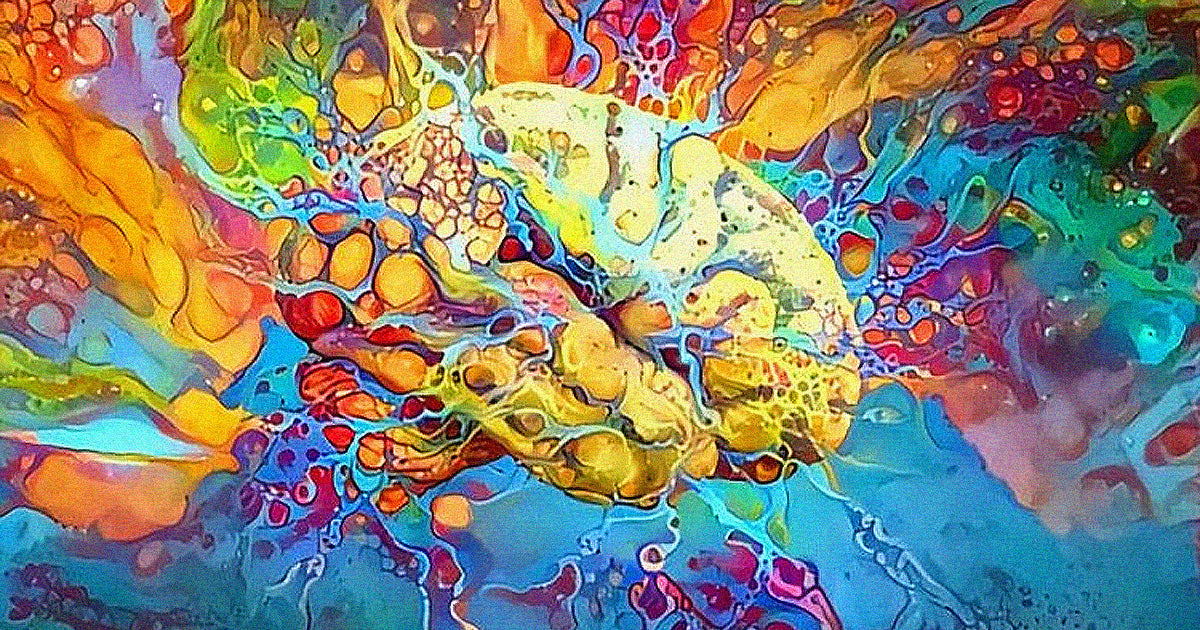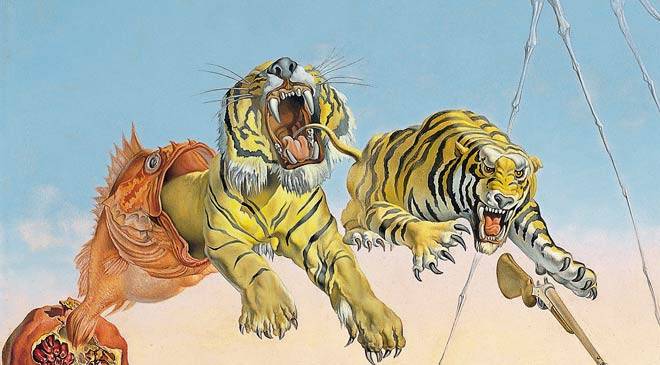What’s the difference between a pro-wrestler and a politician? We don’t have a punchline, so please send us through your funniest responses. Seriously though, both politicians and pro-wrestlers whip audiences into a frenzy in which people suspend their belief and willfully go along for the ride. Read on to find out what politics and pro-wrestling have in common!
Suzi
Aside from that, we’ve got some healthy discussion on cryptocurrency and the environment, cybersickness, galactic wine, neuroscience, and the ethics of pharmaceuticals.
If you come across news that everyone should know about, send me a link to it via info@thinkinc.org.au and we might include it in the next edition!
Warm regards,
Suzi
CRYPTO: THE GOOD, THE BAD AND THE UGLY

People are becoming more aware of the detrimental impact that cryptocurrencies have on our environment.
Proof of work blockchains, which are used by Bitcoin, require a huge amount of computing power due to their need to be mined. This mining process requires special equipment which uses a lot of electricity. Most bitcoin mining happens in China, where electricity is mainly coal-generated.
The environmental burden of Bitcoin has lead Elon Musk to no longer accept it as a form of payment at Tesla, whose mission statement is to “accelerate the world’s transition to sustainable energy”. Despite this, Musk keeps plugging Dogecoin which also uses proof of work blockchain. This support of Dogecoin has caused its value to soar (to the moon, baby!)
On the other hand, Ethereum is halfway through its move from proof of work to proof of stake blockchain. This move drastically cuts its emissions, as it only requires a computer to run for milliseconds at a time. The co-founder of Ethereum, Vitalik Buterin, who is also the world’s youngest known crypto-billionaire, recently donated around $1.2 billion worth of SHIB tokens to the India Covid Relief Fund.
This is on top of his $600,000 donation of Ethereum and maker tokens to the same fund earlier in April.
→ Click here to learn more.
CYBERSICKNESS

Have you ever felt sick from spending too much time staring at a screen? You’re not alone, you’re not going crazy, and don’t worry, it’s probably not COVID (although you should definitely get tested just in case).
More evidence is showing that you can get motion sickness, or cybersickness, from spending too much time watching movement on a screen while you are sitting motionless. Scientists at first thought that this only happened with Virtual Reality headsets, but it can happen with your everyday tech as well. This really came to light during the lockdown when people were spending hours upon hours in front of a moving screen, and less time than normal walking around and focusing their eyes on still objects.
TYPING WITHOUT MOVING YOUR HAND
Scientists from the BrainGate Collaboration have had a breakthrough after many years trying to decipher the brain activity associated with handwriting.
They worked with a 65-year-old man with paralysis who had sensors implanted in the part of his brain associated with movement of his right arm and hand. When the man imagined writing a letter, the system could decode the neural activity and produce the letter on the screen.The man was able to “type” 90 characters per minute, which is more than double the previous record for typing with a brain-computer interface. This is big news for helping people with all sorts of disabilities to communicate quickly.
→ Click here to learn more.
GALACTIC WINE

How do you prefer your wine, aged in French oak barrels or aged in Earth’s orbit? If you’ve got a spare $1 million, you might be able to buy the latter. It comes in an eccentric specially-designed case, pictured above.
A bottle of Pétrus 200, a tasty Bordeaux merlot, spent 14 months in orbit as part of a privately funded research study on food and agriculture. Space Cargo Unlimited sent 12 bottles to the ISS in November 2019 to see what zero-gravity would do to the wine. After more than 400 days in space, the well-travelled wine is back on Earth, and specialised wine tasters say it’s more floral and smoky than before, but that this is typical of Pétrus as it ages.
Was it really worth it then? Yes, if you take into consideration the fact that proceeds from the auction of the wine will go to further food and agriculture experiments in space.
→ Click here to learn more.
POLITICS: PRO-WRESTLING IN SUITS?
Kayfabe. If you’re not a WWE fan, you might not know what it is. Kayfabe is the fake reality that professional wrestlers stage to entertain the audience.
It involves creating fake rivalries or hatred for each other to sweep the audience into an excited frenzy. Well some people, most famously Eric Weinstein, argue that politics has become kayfabricated. He argues that it is a performance that layers fact upon fiction upon fact, and that eventually it becomes too difficult to see the situation for what it is.
Adding to the confusion, some of the actors begin to believe the fantasy, which, in a way, adds a layer of truth to it. And like in pro-wrestling, we willfully suspend our disbelief and play along, all to the benefit of political leaders and news media who benefit from the drama.
What do you think? Like pro-wrestlers, do politicians fake drama to change public opinion?
→ Click here to learn more.
SINGER'S KEYNOTE ADDRESS
Pharmaceutical companies can make more money creating anti-baldness or erectile dysfunction medication for people in wealthy nations than they can make by creating vaccines against deadly diseases for people in developing nations. Worse still, there’s more financial incentive for pharmaceutical companies to develop ongoing treatment of a disease, than for a vaccine that could eliminate the disease altogether. These are just some of the issues that ethical philosopher Peter Singer raises in his keynote address to the World Health Organization’s Global Research and Innovation Fund last week.
On the topic of COVID vaccinations, Peter argues that saving lives, strictly speaking, shouldn’t be the goal of the worldwide vaccine rollout. Peter invites us to consider that saving the life of a young person, who has 40 years of life ahead of them, is a more ethical decision than saving the life of someone in their 90s who has dementia.
Yes, it might not be a pretty image, but these are the uncomfortable ethical questions that we have to ask in order to provide the least amount of suffering for the least amount of people.
Watch the video by clicking the link below and selecting Session 1- Part 1. Peter’s speech starts at 00:58.
→ Click here to learn more.
PICTURE OF THE WEEK

NASA has just released these beautiful pictures of Jupiter which were captured on different spacecraft, including the Hubble Telescope. They show the planet captured at different wavelengths: infrared, visible, and ultraviolet.
By combining the three types of images with lightning data, the scientists were able to probe various layers of the cloud structure to gain a better understanding of the formation processes behind Jupiter’s massive storms. The scientists are now tasked with finding out why Jupiter’s beauty spot, the Great Red Spot is shrinking.
→ Click here for more info.



Leave a comment
This site is protected by hCaptcha and the hCaptcha Privacy Policy and Terms of Service apply.